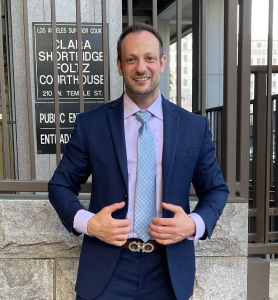
We often see the terms escorting and prostitution used incorrectly interchangeably. Not everyone understands that they have differences. In this article, we will examine the difference between escorting and prostitution.
And if you are facing sex crime convictions, it's critical to understand these nuances as your future and freedom may be at stake. Our criminal defense lawyer can discuss these differences further in a free case evaluation. Reach us now at (323) 747-7484.
An escort is someone hired to provide a client with companionship or other non-sexual services. Escorts are hired through an agency or directly by clients seeking someone to go with them to social events, parties, or dinners. Often, escorts are paid for their time and companionship only and are not expected to engage in sexual acts with their clients.

California law requires escorts to be licensed before offering their escort services. Escorts without a license can face legal consequences, including fines and imprisonment.
Solicitation, prostitution, and human trafficking are banned in California, but escorting is legal. Escorts who engage in sexual conduct with customers for payment are breaking the law.
California escorts should learn and follow the laws and regulations that govern their profession.
Someone may question whether it is prohibited to engage in sexual intercourse with an escort during their free time. Many may argue that it is not unlawful if the act occurs during the escort's personal time while they are not working.
It becomes criminal if police officers can establish probable cause to suspect that the escort was engaged to do the sexual act at a different time. If this is revealed, police may pursue the escort and the customer. But, a qualified sex crimes attorney may be better able to explain such matters individually.

A prostitute is a person who engages in sexual activities in exchange for money or other forms of compensation. Prostitution is often considered a form of sex work, and individuals who work as prostitutes are sometimes referred to as sex workers.
Prostitution is often associated with social and legal issues, including:
Many say that making prostitution a crime makes it harder to deal with these problems. And can leave sex workers open to violence and exploitation. Prostitution is complex and controversial and remains a subject of ongoing debate and discussion in many parts of the world.
Prostitution is illegal in California, as it is in most other states. The state's laws prohibit persons from providing services for sexual gratification. California imposes heavy penalties on criminals who profit from sexual acts.
Section 647(b) of the California Penal Code forbids enticing another to engage in sexual activity for hire. A person convicted of a prostitution charge faces up to six months in prison. Also, they could be fined $1,000.

Solicitation occurs similarly to prostitution. Both sexual offenses are punished severely. Solicitation is the act of offering and intending to perform lewd sexual acts in exchange for payment.
The legislation defines lewd conduct as touching another individual's genitalia, buttocks, or breast. Lewd conduct applies to sexual encounters as well. The solicited individual need not be a prostitute to commit the crime.
In California, prostitution and solicitation are misdemeanors. A first or second offense may result in a $1,000 fine and up to six months in jail. If convicted for the third time, one could face imprisonment for 90 days to six months and fines of up to $1,000. If the prostitute was under 18, she faced fines of up to $10,000 and between two days and one year in jail.
A prostitution conviction also results in the following:
Also, you may be asked to register as a sexual offender. If you are facing such charges, you need the counsel and defense of an experienced Los Angeles Sex Crimes Attorney.
There are several defenses that you can use to help fight against prostitution charges. Depending on your circumstances, some of these defenses might be stronger than others. But, it is best to discuss your specific situation with a lawyer.
One who is familiar with defending prostitution charges to help you develop a strong and customized defense strategy for your case. A few of these defenses include:
A person may be falsely accused of prostitution due to mistaken identity, malicious intent, or other reasons. A skilled defense attorney can help investigate the circumstances surrounding the accusation and present evidence that shows the accused is innocent.
Entrapment happens when a law enforcement officer induces someone to commit a crime they would not have otherwise committed. In prostitution cases, this could mean that a police officer coerced or encouraged the accused to engage in prostitution. If entrapment can be proven, the charges may be dismissed.
Prosecutors must prove beyond a reasonable doubt that the accused engaged in prostitution. In the absence of solid or direct evidence, or if the evidence is deemed insufficient or circumstantial, the charges could be dismissed.
See also: Los Angeles Sex Crimes Attorney.

Bill 233, a historic harm reduction bill for sex workers, was passed in 2019 in California. In two ways, the new law intends to promote the health and safety of sex workers:
Escort and prostitution charges can be serious offenses with significant legal and social consequences, including fines, imprisonment, and damage to your reputation. Enlisting the assistance of a criminal defense lawyer can assist you in navigating the complex justice system and provide a strong defense to protect your rights.
Overall, seeking the aid of a criminal defense lawyer for charges related to escorting or prostitution can offer you the highest possibility of attaining a favorable outcome in your case.

Remove the fear and anxiety of unfair sex crime accusations. We have the skill and experience to defend you against all sex crime charges, including those involving prostitution. We'll explain the process so you know exactly what to expect. Plus, we'll go case-by-case to shield you against harsh penalties.
Call us at (323) 747-7484 or submit an online form for a free consultation.
Search
Categories